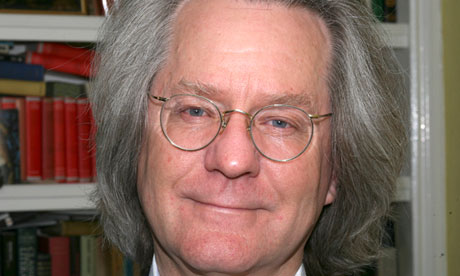
I have been struck by St. Paul's words in Romans ch. 1, which suggest that there is no such thing as a bona fide atheist, that all men have a knowledge of God "from the things that He has made" available to them, even when, as he says, they "repress" this truth in their "unrighteousness." If this is the case, I suppose it means that although there are those who consider themselves "atheists," that they are repressing something that they "cannot not know," to borrow J. Budziszewski's apt phrase.
Then, there's this new interesting article by Damon Linker, reviewing A.C. Grayling's book, The God Argument: The Case Against Religion and for Humanism. Linker's article is entitled "Where are the honest atheists?" (The Week, March 8, 2013), and detailing the case "That godlessness might be both true and terrible is something that the new atheists refuse to entertain." But unlike Nietzsche and Camus, who were at least honest about the implications of their nihilism, Grayling's argument is graying with well-rehearsed dissimulation. As Linker writes: ". . . honesty requires more than sentimental, superficial happy talk, which is all readers will get from A.C. Grayling and his anti-religious comrades in arms."
[Hat tip to Janet Smith]

4 comments:
I'm a recovered atheist and a fervent Catholic for many years.
I must say, I don't recollect having been "dishonest" in the simple sense you seem to be accusing atheists of. My memory of becoming a "convert" to atheism is that of real intellectual delight and a kind of relief.
Hello Jeff,
There are two different species of dishonesty that are distinguished here: (1) that which St. Paul suggests, as I relate in the opening paragraph of the post, and (2) that related by the author of the linked article.
First, I agree that I am not aware of any sensible awareness of the first sort of dishonesty on the part of those who are self-identified atheists. The problem, then, is what to do with the testimony of Scripture -- with St. Paul, who says that all have available this knowledge that God exists and yet repress it, and the Psalmist who says that it is the "fool [who] says in his heart [that] there is no God."
To be fair, I think one must also distinguish the position of the "atheist" from that of the "agnostic," since the former is in principle far more ambitious, claiming that there is no God (a proposition logically incapable of proof without omniscience), while the latter is much more modest, simply claiming not to know either way. Still, neither term of this distinction settles the earlier issue of what to do with the claims of Scripture.
Second, there is the claim of the linked article, which is that self-identified atheists generally neglect these days to deal with the abyss of nihilism that "atheism" logically entails. Some, like Nietzsche and Camus have been honest about this. Nietzsche mocked those who saw the "death" (or absence) of God as a sort of happy realization that the cat is away so that the mice can play. "Alas, grant me madness," he wrote, "for I am the most outcast of outcasts."
Camus declared that there were two propositions of which he was equally certain: (a) that he could not live in a world without meaning, and (b) that the world has no meaning. And so he dealt seriously and philosophically with the question, therefore, "why not commit suicide?"
Peace, PP
I'd like to volunteer, PP, as your example of the 1st sort of dishonest atheist. I knew He existed all along, as evidenced by the fact that I would pray to Him when the going got tough in graduate school. But the putative crisis would pass and I'd go back to pretending I was Nietzsche (the subject of my Master's Thesis). Then I got married and had to face a REAL trial: I found myself in Children's Hospital pacing the floor while my daughter had a tumor removed. (It turned out benign, thank God, and she is now a healthy young lady, the apple of my eye.) My intellectual dishonesty became at that point undeniable. It was either all in with God or abjure prayer forever, which I knew I wouldn't be able to do as a father. A short time later I was sitting at Holy Redeemer with my beloved aunt, God rest her soul, when an elderly man caught my eye on as he walked up to Communion. White haired, stooped, I'd seen him many times before but this time my relation to him became clear. "You bully," I thought to myself, "there's whom you've been picking on all these years." Growing up as the oldest of 5 boys and one of the stronger kids in the neighborhood, I'd always feared having that charge leveled at me- He'd hit me right where I live. I then made up my mind, filled with joy gratitude, to defend the HMC with every ounce of intellectual strength in me. Later on I realized: "In weakness I am made strong" and "Saul, Saul, why do you persecute Me?"
Thanks for that beautiful comment, Mr. Allen. It's hard for anyone to second guess personal testimony. Compelling.
Post a Comment